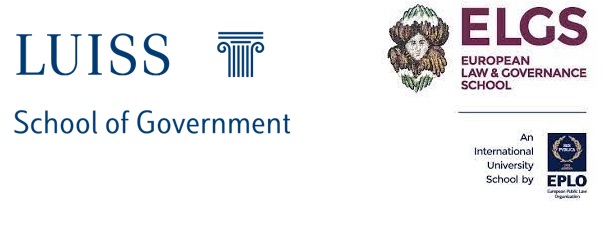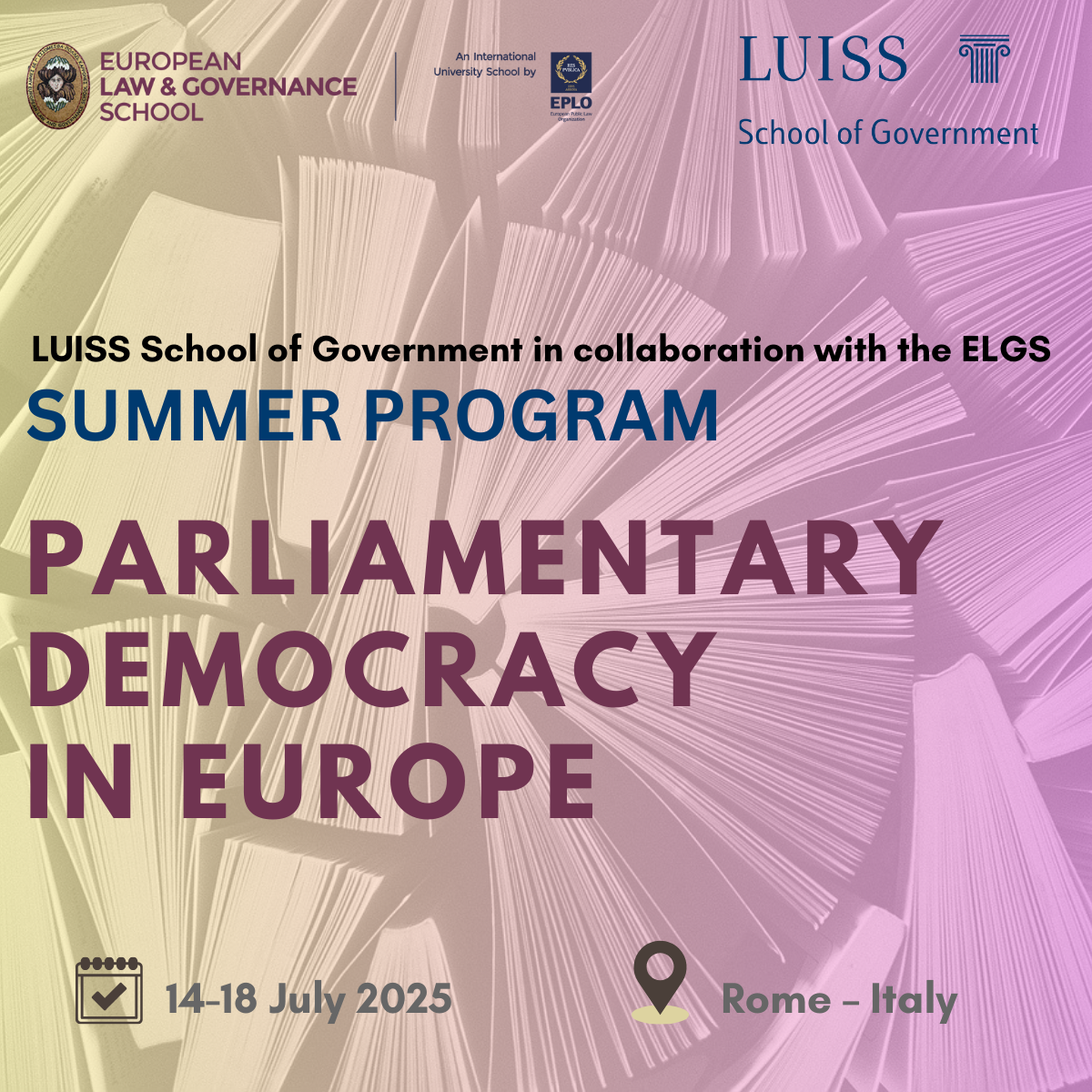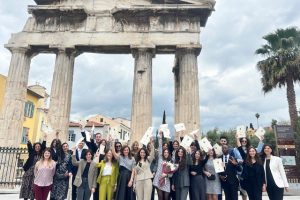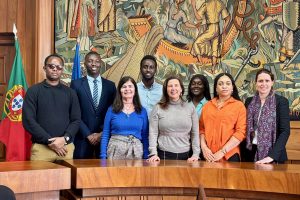Scholarships for the Summer Program on “AI and Parliaments” in collaboration with LUISS School of Government

The Summer Program on Parliamentary Democracy in Europe will focus this year on “AI and Parliaments” in collaboration with LUISS School of Government in Rome, Italy.
Scholarships offered by EPLO.
14-18 July 2025, conducted at Luiss University Campus in Viale Romania, Rome – Italy
This summer program on “Parliamentary Democracy in Europe” (14th edition): “AI and Parliaments. Challenges in representation, law-making and administrative support”. organized by LUISS School of Government, in collaboration with the Luiss Center for Parliamentary Studies (CESP) and with the European Law & Governance School (ELGS) of the European Public Law Organization (EPLO), is now underway.
Artificial Intelligence and digital applications have a transformative impact on every aspect of our lives, including the legal and political spheres, and it is therefore necessary to leverage these technologies to improve also the efficiency of parliaments and parliamentary democracies.
Due to technological innovations, Parliaments are exposed to extraordinary challenges, from the point of view of procedures, organization, and internal functioning. The new possibilities that the Artificial Intelligence offers can be exploited not only in the field of legislative drafting and more generally in the decision-making process, but also for the collection, processing and synthesis of data and information, which constitute a necessary resource to the effective exercise of political direction and oversight functions. At the same time, as the scholarship keeps underscoring, there is the need to ensure that the exploitation of new technologies does not infringe upon the main tenets of liberal democratic constitutionalism.
By applying research-based knowledge and professional skills to the study of Parliaments’ exploitation of the Artificial Intelligence, the Summer Program offers a multi-faceted and updated overview of the interrelationships between AI and parliamentary democracy. This Advanced Course examines an innovative topic such as the application of AI to democratic processes and parliamentary procedures, providing participants with effective tools to deal with the phenomenon in their professional or academic environment.
The summer program will include a series of lectures and other interactive activities, such as exercises and presentations by participants (as well as a visit to the Italian Chambers).
Designed for:
- graduates (bachelor’s or master’s) , doctoral students and post-docs active in the field of constitutional law, human rights, political science, parliamentary and legislative studies, European studies, international affairs (preferably with a background in social sciences)
- civil servants from European institutions and bodies, from international organizations, and from national and subnational institutions in the EU Member States and from third countries
- professionals working for NGOs, think tanks and interest groups who want to acquire advanced knowledge on the parliamentary responses to the main ongoing transitions and to crisis and emergency governance.
Cost of the Program:
- € 800 euro (without accommodation)
- € 1.200 euro (with accommodation)
The tuition fees include academic program and reading materials, institutional and study visits, office hours, supervision and feedback on ongoing research.
Scholarships offered by the EPLO
The EPLO offers 10 full tuition scholarships addressed to excellent students which are evaluated based on their academic and personal record provided along with their application. An administrative fee of 250€ will be charged.
Applications deadline: 30 May, 2025. Applications received after the deadline will be considered only if there are still open spaces.
How to apply: Applicants should submit an updated CV and letter of motivation in English to summerschools@elgs.eu Information at T: +30 211 311 0 671. Admission is based on professional and academic achievement. A good knowledge of written and spoken English is also required.




